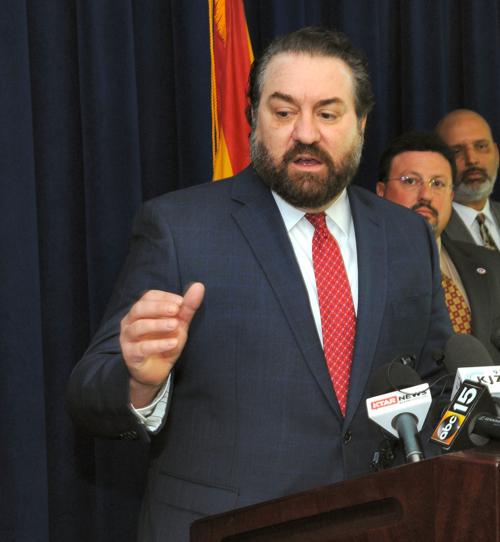PHOENIX — The U.S. Supreme Court has spurned a bid by Arizona Attorney General Mark Brnovich to sue California over how it applies its business tax on residents and investors here.
The justices on Monday refused to consider Arizona’s challenge to California’s “doing business” tax. The court gave no reason for its decision.
Monday’s action was not unanimous. Justice Clarence Thomas, writing a dissent for himself and Justice Samuel Alito, said the U.S. Constitution empowers the nation’s high court with “original jurisdiction” of disputes between the states. What that means, he said, is the failure of the justices to at least let Brnovich try to make his case pretty much leaves Arizona without a legal remedy.
The court ruling likely still allows individual taxpayers affected by the California law to challenge it themselves in federal court.
But that is exactly the option that Brnovich, in filing suit on behalf of Arizona and its taxpayers, sought to avoid. He had told the justices that affected businesses, with only $800 a year at stake, are unlikely to spend the resources to challenge on an individual bases.
Brnovich said he is exploring what options, if any, remain for the state.
But he also lashed out at the Trump administration which, through the solicitor general of the Department of Justice, urged the justices to send Brnovich packing.
“This is why politics sucks,” he told Capitol Media Services.
“People out there on a national level, on a local level, they complain about California and how out of control they are,” Brnovich said.
“And here was a chance for someone to step in and say, ‘You know what? We agree. You’re right. California is out of control.’ But apparently they had other priorities.”
At the heart of Arizona’s complaint is that “doing business” tax. Brnovich has no specific challenge to California’s authority to do that.
What is an issue, he argues, is a decision by California to decide that anyone who is an investor in a limited liability company doing business in California is also, by definition, doing business in the state and also subject to that $800-a-year levy.
“California assesses the ‘doing business’ tax so expansively that it reaches out-of-state companies that do not conduct any actual business in California,” Brnovich told the court. The only connection, he said, is that it may have “purely passive investments in California companies.”
He said that affects more than 13,300 Arizona-based LLCs that pay about $10.6 million a year to California under what he claims is an illegal scheme.
But Brnovich said the issue is about more than Arizonans paying money to California.
He pointed out that any money paid by an Arizona-based LLC generally is considered a deductible business expense under Arizona law. And he figures Arizona loses about $484,000 a year.
And Brnovich said that makes the issue a dispute between two states, something that permits him to take the case directly to the nation’s high court and bypass all those intermediate steps.
But in his own legal filings, Noel Francisco, the solicitor general for the U.S. Department of Justice, told the court that the state — and Brnovich in particular — has no real standing to seek Supreme Court review of the tax practices of California.
Francisco said if there is some illegality it is up to the firms that are affected to file suit. He said any legal claims they have can be handled through the regular court process, all without involving the justices.
Brnovich called it “very disappointing” the Trump administration and its solicitor general did not consider this a problem.
“You would think any administration that cares (about) one state illegally taxing businesses, that that would be important,” he continued.





